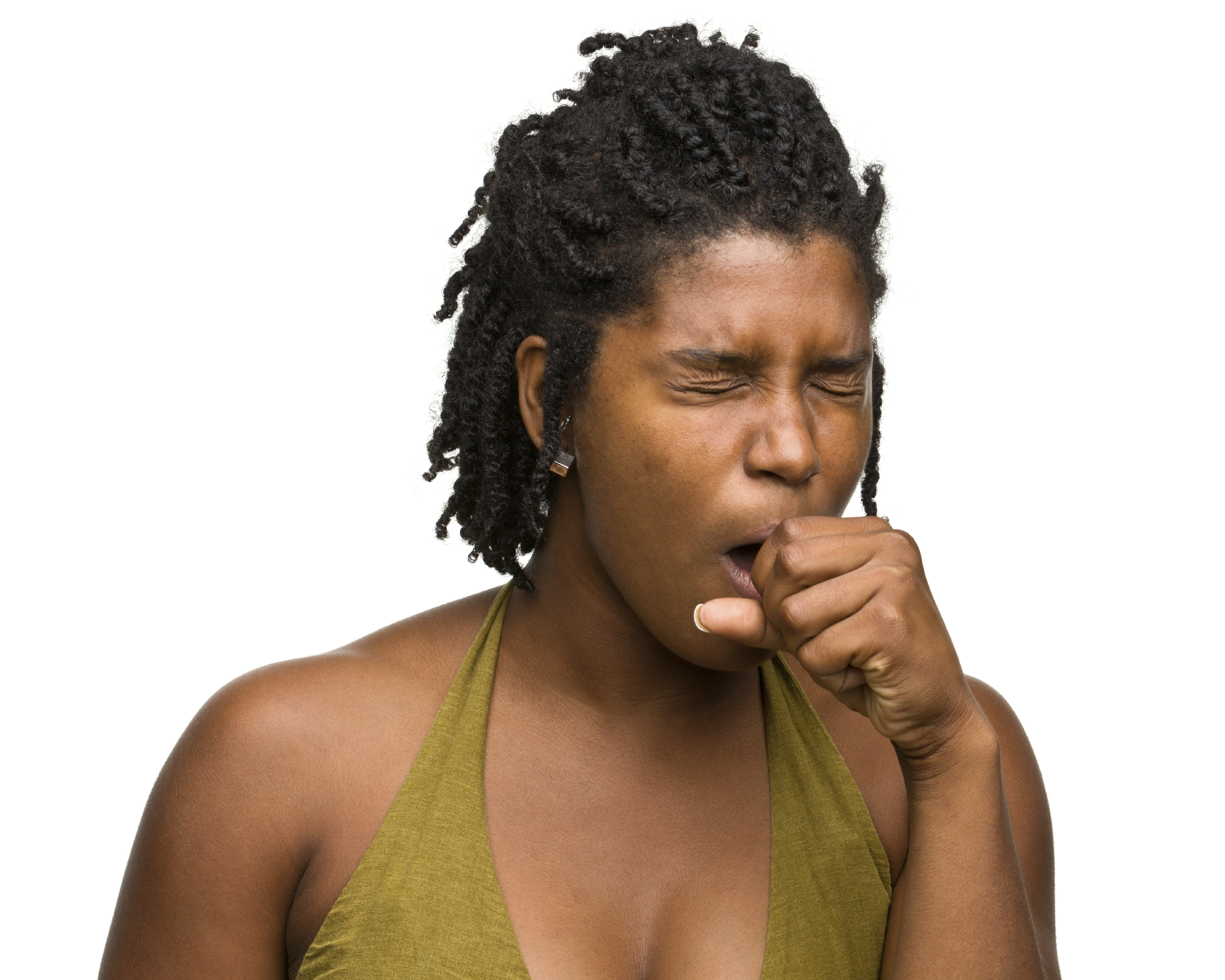At least once in our lives and (unfortunately) more likely once a year during our lifetimes, we may stumble across and experience a persistent cough. Coughing isn't such a bad thing, though admittedly they can become a nuisance and even painful. We cough as a protective reflex to help clear the passageway to make breathing easier. Coughing is the body's way of getting rid of excess mucus. Mucus in and of itself isn't such a bad thing. It actually helps protect the lining of the nose, throat, sinuses, gastrointestinal tract, stomach, mouth, genital tract, and lungs. It helps keep these areas moist and it helps carry away bad bacteria and viruses. We cough as a protective reflex to help clear the passageway to make breathing easier.
Coughing may due to an infection (viral or bacterial) and is an important part of the healing process. Other causes of coughs may include:
Common cold (usually viral)
Lung disease such as emphysema or chronic obstructive pulmonary disease
Smoking
Inflammation
Pollution
Gastroesophageal reflux disease (GERD)
Allergies
Asthma
Irritation from food or foreign object
Dry climate
There are generally four ways we can go about addressing or managing a cough. But before we get to that it is very important to note that any cough that persists for longer than two weeks should be followed up with your family doctor for further evaluation. Also, if, along with the cough, you are running a fever for more than a few days and have a very sore throat, follow up with your doctor. And if you are talking about a child under the age of 5, of course keep a close eye on temperature and whether or not the child is able to clear the mucus on his/her own. When in doubt, see your doctor.
Here is a basic overview of options:
Palliate (help soothe or ease the pain or irritation without really addressing the cause): To help soothe a sore throat and ease irritation, you may consider an herbal or menthol lozenge, hot herbal tea and hot water with ginger, lemon and honey. Keep yourself well hydrated – water and tea are your best bets. Avoid sugary sodas or heavy drinks with excess sugar. Consider steam inhalation – either a steam room, steam shower, or make your own on the stove top where you fill a large pot with water (and some lemon or eucalyptus is nice), bring to a low boil, turn off heat and then you can position yourself safely above the pot with a light towel tenting your head and inhale the steam
Expectorate (help thin mucus to be able to expel more easily): Expectorants are a good daytime strategy because ultimately we want to clear the body of excess mucus. One of the most typical over the counter expectorant medicines is guaifenesin. In the herbal world, common expectorants include mullein, marshmallow (not the puffy white kind), ginger, wild cherry bark, horehound, and pleurisy root. Also used are eucalyptus, thyme, anise and garlic.
Suppress (reduce the amount of coughing): Since coughing is generally a way for the body to get rid of excess mucus or infection, suppressing a cough isn't a great idea unless #1 it is a dry cough and/or #2 the individual with the cough needs a good night's rest. Over the counter cough suppressants actually don't work very well and they can have side effects like constipation, dry mouth, and drowsiness. They should be left for the person who either really needs to get some rest or someone who has to get up and speak in public and just needs to try and suppress the cough for a short time. Licorice root extract and wild cherry bark may be two of the most commonly used herbal cough suppressants. Over the counter medicine (typically doesn't work well) includes dextromethorphan. Codeine may be prescribed in severe cases.
Antibiotics (should only be used when bacterial infection is confirmed): Too often people beg their physician for antibiotics when they've had a cough for a week or longer. But most often your cough is due to a virus. Occasionally a bacterial infection can follow a common cold, in which case antibiotics may be prescribed. But you should only go the antibiotic route when one of the following has been confirmed: bacterial bronchitis, pneumonia, or strep throat.
Coughs are an important part of the healing process, as annoying and painful as they can be. The average cough associated with the common cold may last a few weeks. The best thing you can do for yourself is to be patient; stay hydrated; steam whenever you can; continue to exercise at a mild-moderate level; avoid sugar, tobacco, and alcohol; rest your voice; keep your immune system strong; and prop yourself up at night with a few extra pillows to help improve drainage and prevent excess mucus from settling into your lungs.


